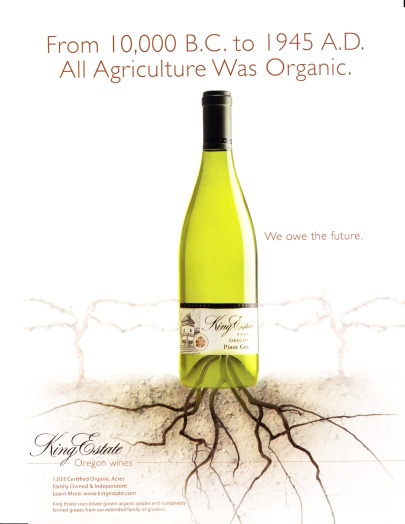|
|
 |
PAGE 96 / 102 |
 |
Unit 3: Systems in Action
 |
Organic wine advertisement. (King Estate Winery, Eugene, Oregon) |
J.I. Rodale is commonly regarded as the father of the modern organic farming movement in the U.S. Beginning in the 1940s, Rodale was the main source of information about "non-chemical" farming methods which he distributed largely through his own publishing house. Through the 1960s, although a small group and very much outside the mainstream, organic farmers remained dedicated to their cause and continued to work at developing and adapting production methods that fit the organic philosophy. Through the 1970s and 80s, however, increased environmental awareness and consumer demand began to fuel the growth of the organic industry.
During this period, although there was general agreement on philosophical foundations, no common standards or regulations existed defining organic agriculture. As different states and certifying groups established their own separate rules for organic production, the end result was much confusion both for farmers and consumers about what organic meant. Out of this confusion, a movement grew to develop a national organic standard to clarify organic production practices and to help facilitate interstate (and international) marketing. This eventually led to the Organic Foods Production Act (OFPA), passed by congress in 1990, that finally established a national organic standard. |